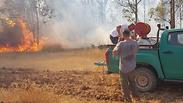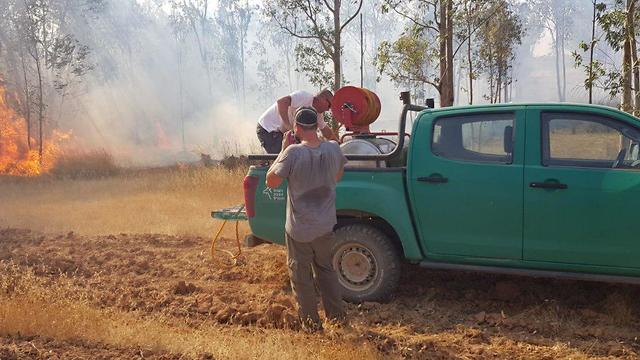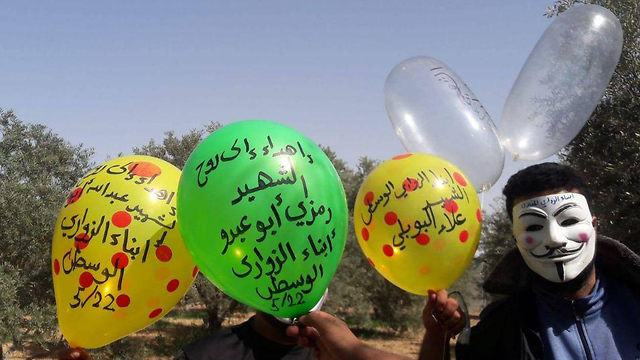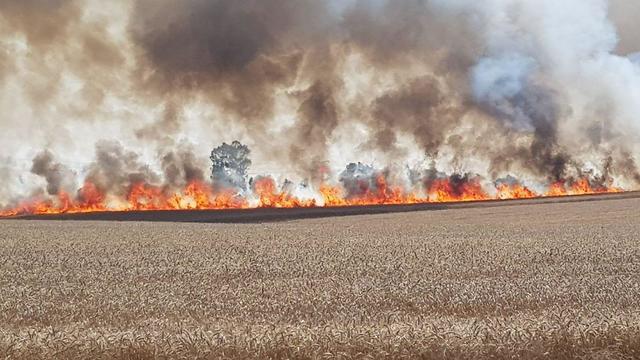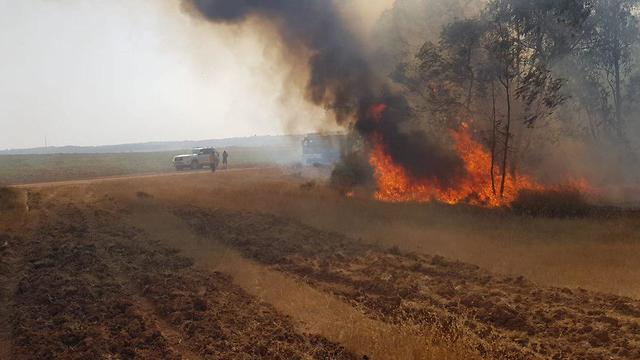
Israel baffled by Hamas-led resurgence of Gaza border violence
Analysis: Israeli officials resort to ineffective response measures - contested by the military - as they struggle to understand why the terror group has intensified incendiary balloon attacks even as talks underway for broad ceasefire deal
On Tuesday alone there were at least seven fires that broke out in the Gaza border area, including Kissufim and Be'eri forests in Eshkol Regional Council and Shokeda Forest in the Sdot Negev Regional Council.
All the fires were caused by incendiary balloons flown from Gaza and had been put down by firefighters from the JNF-KKL, with the help of security coordinators of the communities bordering the Strip.
In addition, Hamas plans to intensify the level of violence during the weekly March of Return protests along the security fence after several weeks of relatively quiet border demonstrations.
Israel doesn't seem to understand what’s driving Hamas to escalate the situation at this point in time, since, according to one senior Israeli official, the terror group’s demands - which include the entry of Qatari cash and various construction materials into Gaza - have been met and the process of negotiating a wide-scale ceasefire arrangement is ongoing.
In response to the resurgence of violence on the southern border, Israel once again reduced the fishing zone off the Gaza coast from 10 nautical miles to 6.
The IDF officials apparently don’t believe this kind of punishment is effective, because it harms one of the most vulnerable populations of the coastal enclave - the families of those making a living from fishing.
The military, however, has no choice but to go along with the political establishment’s decision given that it has no adequate alternative.
IDF Chief of Staff Aviv Kochavi on Friday visited the heads of Israeli communities bordering the Strip, telling them that the balloon terror is unacceptable and those perpetrating it should be targeted either directly or indirectly.
The shift by Hamas indicates that Israel must change its strategy vis-a-vis the terror group. The idea of reducing or expanding the fishing zone based on developments on the ground doesn’t provide a real solution.
When events on the ground intensify, the Israeli response should be adjusted accordingly. And right now Benjamin Netanyahu, who is both prime minister and defense minister, is the only one who can solve this problem.













